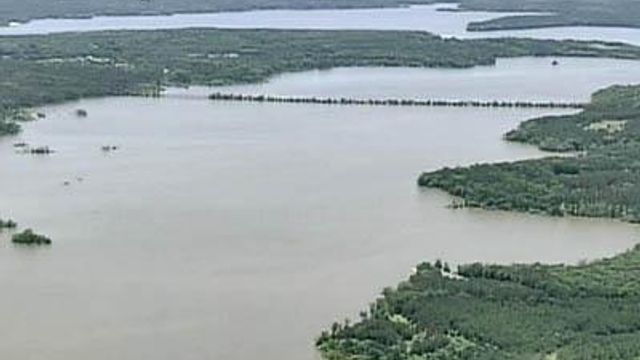State: Ailing Falls Lake needs assistance
Eliminating excessive chlorophyll from the lake could lead to more restrictions on nearby development and road construction and changes to Durham's wastewater treatment plant.
Posted — UpdatedEvery two years, the state Division of Water Quality looks at all waterways in North Carolina to determine if they're up to environmental standards. The 2008 report, which is awaiting approval by the U.S. Environmental Protection Agency, lists Falls Lake as being "impaired."
"We're talking about nitrogen and phosphorous (causing the spike in chlorophyll)," division spokeswoman Susan Massengale said. "You get too much algae, and it will impair the ability of fish and smaller animals to get oxygen out of the water."
Regulators haven't determined the source of the excessive nutrients, she said, noting it could come from a combination of factors, such as fertilizer runoff, animal waste, runoff from nearby residential developments or Durham's wastewater treatment plant upstream.
Falls Lake serves as Raleigh's primary reservoir, but the nutrients don't currently threaten the city's water supply, said Dale Crisp, director of Raleigh's Public Utilities Department.
"Generally, it's the activities upstream that ... cause these problems," Crisp said. "I'm sure there will be a lot of discussion about this. We don't want it to get worse."
The state is looking at revising its management plan for the lake, Massengale said, which could mean more restrictions on nearby developments and road construction and changes in the operation of Durham's wastewater treatment plant.
Durham officials said they are working with the state on the issue. Drastic changes to the treatment plant could have a huge financial impact on the city, they said.
"We want to have the best water (quality) levels possible, and on that level, people ought to be concerned," Massengale said.
Jordan Lake was on the "impaired" list in 2002 and 2006, and part of the lake remains on the latest list.
• Credits
Copyright 2024 by Capitol Broadcasting Company. All rights reserved. This material may not be published, broadcast, rewritten or redistributed.






